World
5 Humanitarian Crises We Can’t Ignore
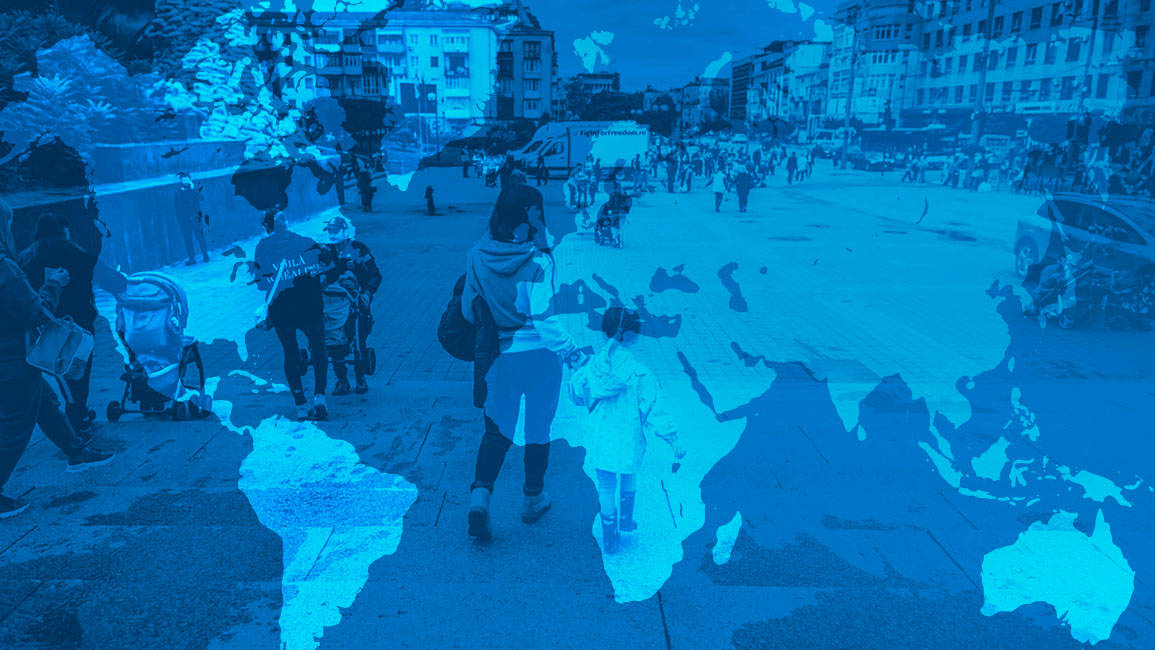
If you’ve been watching the news, you already know — the world is currently facing an urgent humanitarian crisis.
Over 110 million people have been forced to flee their homes, driven by three interconnected realities: violent conflict, climate change and extreme poverty. Almost half of these are children.
We are living through the greatest displacement crisis in recorded history.
At World Relief, our faith compels us to respond, just as it has for 80 years. Today, we continue to boldly engage the world’s greatest crises in partnership with the church. With your help, we can reach people in dire need as they flee their homes in search of safety. Right now, there are five urgent crises we’re responding to. Read on to learn more and find out how you can respond.
Israel-Gaza Crisis
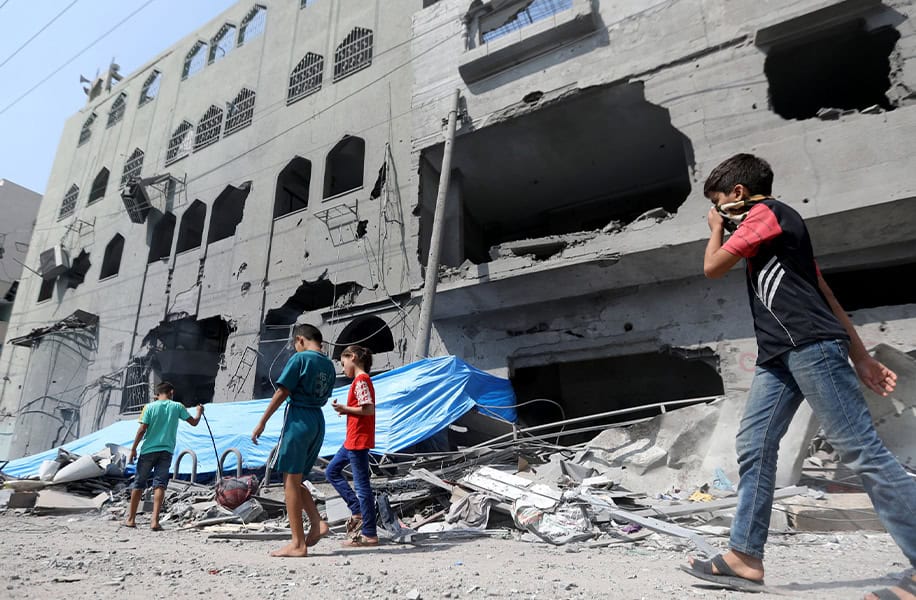
You’ve read or watched reports of the intensity and scale of suffering in the Israel-Gaza crisis. They are gut-wrenching. On October 7, 2023, the world was shaken by news of the deadly attack on Israel by Palestinian armed groups in Gaza. Seven months on, more than 100 Israeli and foreign national hostages are still held captive. The United Nations reports that over 34,000 Palestinians have lost their lives in Gaza and more than 2 million people have been displaced. The destruction of infrastructure and severe famine have left Gazans exposed and defenseless.
World Relief is working though partners on the ground to respond to this grave crisis, caring for both Palestinians and Israelis impacted by the ongoing conflict. While access continues to be difficult in Gaza, we are providing essential medicines that are adequate for about 70,000 people and free mobile primary health clinics, as well as latrines in gathering areas for internally displaced persons (IDP) and solarized water filtration systems. In the West Bank, we are distributing food and basic essential items to those economically impacted. And across the border in Egypt, we are also supporting those Palestinians displaced by the war with food, essential non-food items, transportation and housing.
War in Ukraine
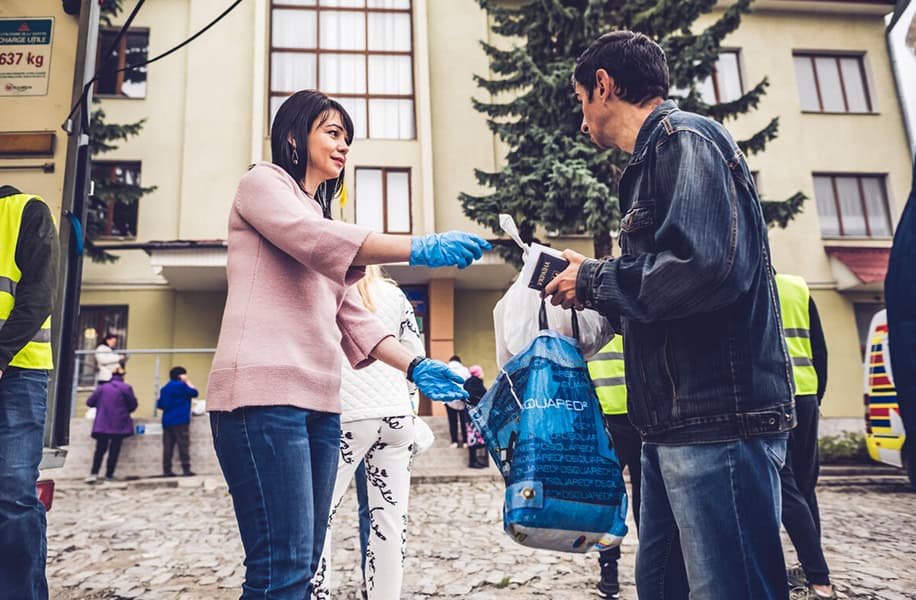
As the war in Ukraine continues into its third year, the need for humanitarian aid remains urgent. According to UNHCR, an estimated 3.7 million people are internally displaced in Ukraine and more than 6.4 million have fled the country as refugees. Approximately 14.6 million Ukrainians will be in urgent need of humanitarian assistance in 2024.
At World Relief, we have been responding since the earliest days of this humanitarian crisis. In the U.S., we have welcomed more than 5,000 Ukrainians seeking safety since the start of the war. In Ukraine and surrounding countries, we have also provided shelter, food and psychosocial support to 345,081 individuals. We continue to serve thousands of Ukrainians through our U.S. locations and our newly established office in Uzhhorod, Ukraine. Many of our programs and partnerships prioritize mental health education and community leaders’ training, women’s and children’s safety and support for low-income and marginalized populations. LEARN MORE ABOUT THE CRISIS IN UKRAINE
Conflict and Humanitarian Crisis in Sudan
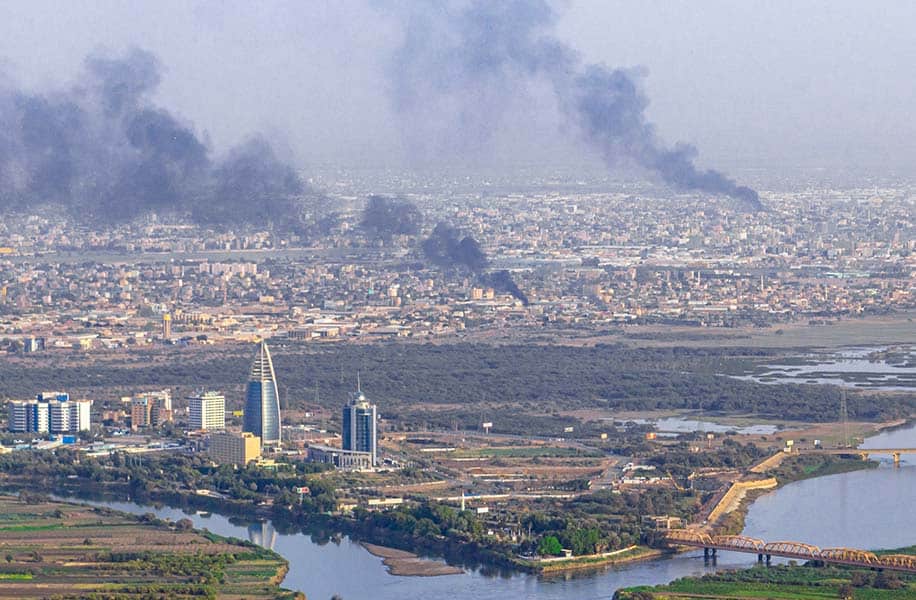
In April, 2023 heavy fighting broke out between two military forces in Sudan. Since then, at least 13,000 people have been killed and nearly 8 million more have been displaced. Now, 7 million people are expected to face famine in the coming months as the war aggravates an existing food crisis. “If things don’t change, by July, 1,400 Sudanese children and elderly will die each day from starvation,” said Josh Meares, Sudan Country Director.
World Relief has a long history of working in Sudan and welcoming refugees from both Sudan and South Sudan to the United States. Josh recalled the early days of the crisis saying, “the banks didn’t work, the government didn’t work, the phones and the internet didn’t work. But World Relief did.” By September 2023, World Relief had reached tens of thousands in Darfur and in east Sudan with food, water, medicine and blankets. Through our new office in the neighboring country of Chad, we also responded to the dire needs of Sudanese refugees. Today, we continue serving hundreds of thousands of people in Sudan, but the need is immense. In West and Central Darfur, we’re providing food, water and hygiene resources, supporting healthcare centers and nutrition programs, and working to reduce the protection risks that the most vulnerable face daily — especially women and children. Outside Darfur, we continue to serve Internally Displaced Persons (IDP) in the Blue Nile region by providing emergency food assistance, rehabilitating health facilities and through agricultural development. LEARN MORE ABOUT THE CRISIS IN SUDAN
Violent Instability in Haiti
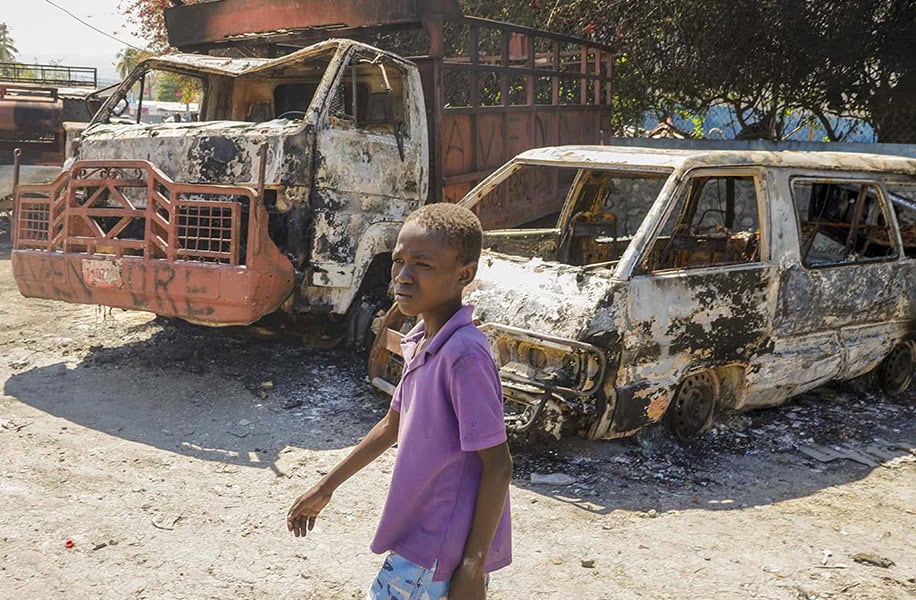
Haiti has long struggled for national stability, beset by earthquakes, economic trials and political upheaval. Social turmoil saw an unprecedented climax in February 2024, when a surge in political unrest and gang-related violence engulfed the capital city, Port-au-Prince. The UN estimated 362,000 Haitians are currently displaced within the country. At least 50% of health facilities are non-functional and 4.97 million people are experiencing, or are expected to experience, acute food insecurity in the coming months.
World Relief has been partnering with local Haitian churches for over 35 years, and we remain committed to the Haitian people in this current humanitarian crisis. Even as other organizations have withdrawn from Haiti in recent months, we’ve remained. In fact, World Relief has been chosen to lead a joint response of international and local NGOs, with the shared goal of reaching 45,529 people in need. Of those, World Relief aims to directly reach 9,000 internally displaced people with clean water and hygiene supplies to mitigate the risk of cholera and other water-borne illnesses and provide 3,000 households with cash assistance for essential food and household supplies, prioritizing marginalized populations through targeted distribution. LEARN MORE ABOUT THE CRISIS IN HAITI
The U.S. – Mexico Border: A Humanitarian Crisis
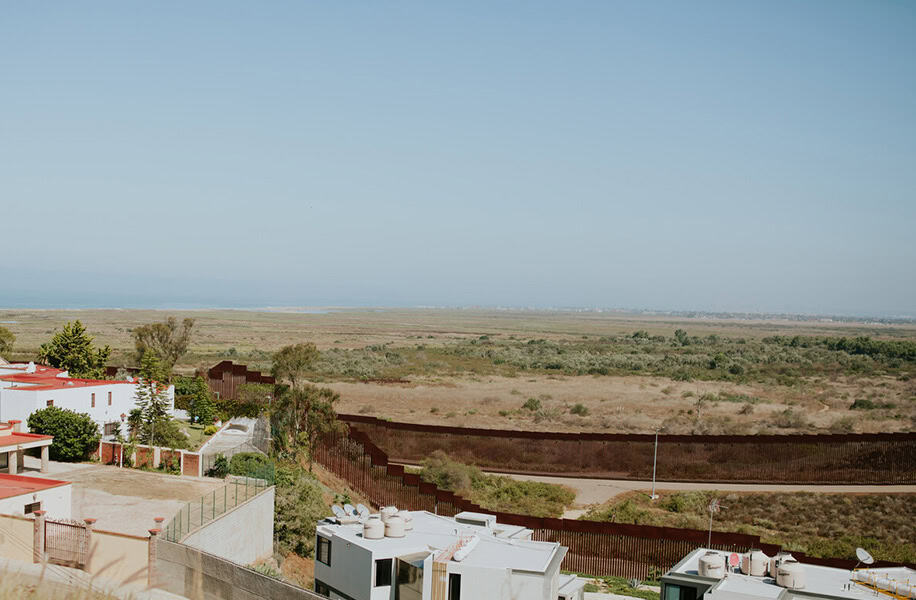
The humanitarian crisis at the U.S.-Mexico border neither starts nor ends there: challenges at the border are fueled by crises in other countries that lead desperate people to leave their homelands in search of safety and opportunity. While many reach the border only to be turned back and others spend months or even years waiting, some are ultimately allowed into the U.S., traveling to different communities. There, newcomers seek to rebuild their lives and navigate a complex U.S. legal system. According to government statistics, the U.S. Border Patrol had over 189,000 encounters with migrants crossing into the United States from Mexico in March 2024. Over 75,000 of those were families and unaccompanied minors.
World Relief is responding through partnerships with local churches and community networks across the U.S.-Mexico Southern border in San Diego-Tijuana, Mexico by providing temporary shelter and meals. In the U.S., we are offering legal services, English language instruction and helping refugees and other immigrants integrate into their new communities. And because past bipartisan efforts to resolve systemic dysfunction in our immigration system have fallen short, we are committed to advocating in local communities and in Washington, D.C. for biblically-based immigration policies that both ensure security for the American people and due process for those fleeing persecution and seeking refuge. LEARN MORE ABOUT THE HUMANITARIAN CRISIS AT THE U.S. SOUTHERN BORDER
Will You Meet This Moment With Us?
Amid unprecedented human suffering and displacement, the need to respond is urgent. At World Relief, we feel this urgency and need your help to respond.
Together, we can relieve suffering today and build a future where whole communities are transformed through the restorative power of Christ — where families thrive, churches are strengthened and communities flourish.
Will you join us?










